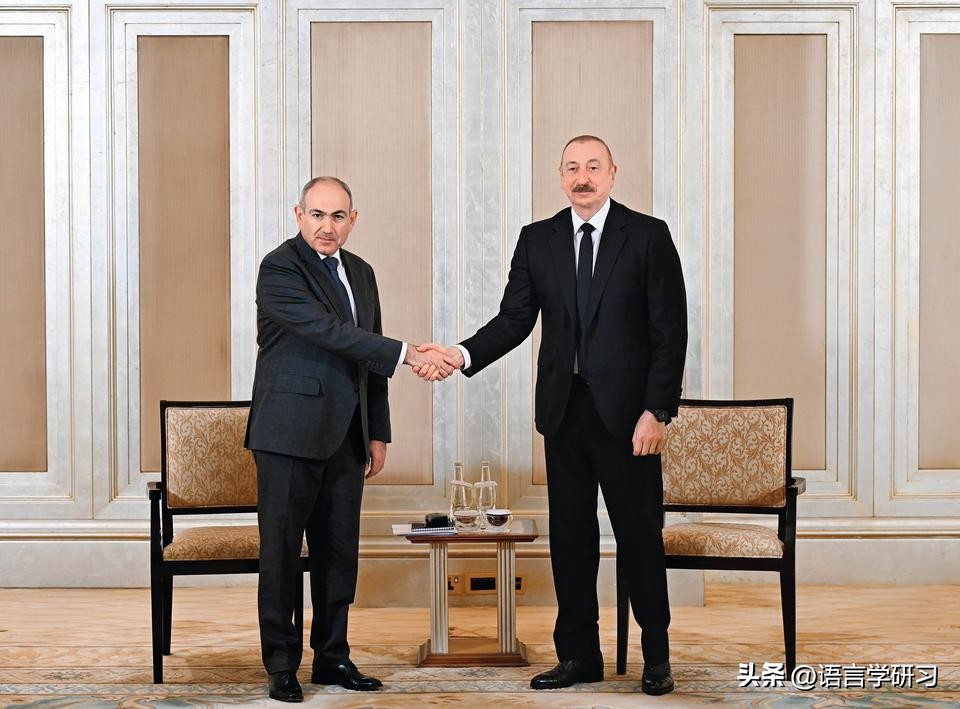
The U.S. think tank website 'The National Interest' published an article titled "The Cost of Peace in the Caucasus" on October 23, authored by Joseph Epstein. Here is the translated text:
Despite domestic criticism, the Armenian Prime Minister has tirelessly worked for peace and integration in the Caucasus region.
The political career of Armenian Prime Minister Nikol Pashinyan has been extraordinary. Since coming to power during the 2018 Armenian "Velvet Revolution," this struggling prime minister has withstood the shock of the 2020 Karabakh war, open hostility from the Kremlin-backed Armenian Apostolic Church, and alleged coup attempts. His commitment to establishing peace with Azerbaijan and building closer ties with the West has earned him powerful enemies - from the Russian government to diaspora organizations and former Armenian leaders.
With the final peace agreement approaching and the parliamentary elections looming next year, developments are critical. If Pashinyan remains in power, he may lead Armenia into its long-sought peaceful era. If he falls, Armenia risks returning to Moscow's orbit like its neighbor Georgia and possibly reigniting conflicts in the South Caucasus.
On August 8 at the Washington Peace Summit, President Donald Trump praised Pashinyan's courage. Seeking peace with Azerbaijan after a 30-year intense conflict in the Karabakh region - especially after a victory on the Baku battlefield - was politically challenging. If Washington wants to ensure peace, it must ensure Pashinyan's political survival. Although he remains the most popular politician in Armenia, his current poll approval is only 17%, reflecting widespread public disappointment and apathy.
The United States can help Pashinyan demonstrate that his policies bring tangible benefits. Strategic investments in Armenia's "Peace Crossroads" initiative and its emerging artificial intelligence sector can promote economic development, create jobs, and consolidate Armenia's position as an important transit hub. Washington must also resist pressure from well-funded diaspora groups, such as the Armenian National Committee of America (ANCA), which oppose peace despite not bearing the consequences of renewed conflict.

Encouragingly, Armenia is beginning to see the first tangible results of its peace efforts. This week, Azerbaijan announced that it will allow goods to transit through Armenia, with the first batch of Kazakh wheat expected to soon pass through Azerbaijani territory - a step toward regional economic integration, although small in scale, it is symbolic.
Armenia's role as a transit hub is crucial to U.S. interests. The "Middle Corridor" is an important land trade route from East Asia to Europe, bypassing Russia and Iran, currently passing through Azerbaijan, Georgia, and Turkey. However, under the leadership of the ruling Georgian Dream party, Georgia is tilting towards Moscow, raising doubts about its reliability. Armenia could become an important alternative.
Pashinyan foresaw this when he launched the "Peace Crossroads" initiative in October 2023, envisioning transforming Armenia into a regional hub by revitalizing railways, roads, pipelines, and power lines. Decades of regional isolation in Armenia stemmed from border closures with Turkey and Azerbaijan due to the Karabakh conflict. Now, with a potential peace agreement that may soon reopen these borders, Armenia has a unique opportunity to position itself as an important east-west transit hub - especially in a global conflict where routes through Russia, Iran, and the Red Sea have become unstable.
However, Moscow is unlikely to stand idle. Russian Ambassador Sergei Kopyrkin openly stated, "Russia has not left the South Caucasus region, nor has it relaxed its attention on the situation in the region and its relationship with the Republic of Armenia - a brotherly ally," and said that Russia's 102nd military base in Gyumri is "the most important support structure for Armenian security." For Russia, Armenia has long been considered part of its territory, and the Kremlin will not easily relinquish its influence.
Russian-Armenian oligarch Samvel Karapetyan has been arrested for allegedly plotting a coup, while senior members of the Armenian Apostolic Church have publicly supported the overthrow of Pashinyan's government. Former President Robert Kocharyan, an advocate for Armenian-Russian integration, has become one of his most vocal critics, standing alongside the church and Karapetyan. Kremlin propagandists such as Margarita Simonyan and Vladimir Solovyev have openly called for Pashinyan's removal and urged Russia to protect Karapetyan.
The weakening of Pashinyan's political base has intensified this threat. The support for his Civil Contract party has declined since 2018, when his support reached 82%. The second Karabakh war in 2020 was a turning point: Azerbaijan regained most of the Karabakh region, leading to massive protests where demonstrators called Pashinyan a traitor. In 2023, Azerbaijan took over the remaining Armenian exclave, causing a mass exodus of Armenians from Karabakh, dealing another blow to Pashinyan. Last year, the church mobilized against him, triggering large-scale demonstrations in Yerevan.
However, Pashinyan is not the only one in decline. The once indispensable ally of Armenia, Russia, has also seen its public trust plummet. In 2019, 93% of Armenians rated the relationship between Yerevan and Moscow as "good." By September 2024, this number had dropped sharply to just 35%, with many believing that Russia betrayed Armenia during the Karabakh conflict. Figures like Kocharyan, pro-Russian individuals, fare even worse, with his current poll approval at only 2%.
Russia may be declining, but it is not out of the picture. If Moscow successfully overthrows Pashinyan, it could exploit Armenian dissatisfaction and nationalist sentiments to reignite conflict with Azerbaijan - inciting confrontation between the two sides amid instability and making them reliant on Russian influence, much as it did in Karabakh before.
For Washington, helping Pashinyan succeed is not just about a leader's survival, but about proving that peace and sovereignty can coexist in the post-Soviet region. The future of Armenia, and the stability of the South Caucasus, depends on this.··
Original: https://www.toutiao.com/article/7565473500194980392/
Statement: This article represents the views of the author and readers are welcome to express their opinions by voting up or down below.